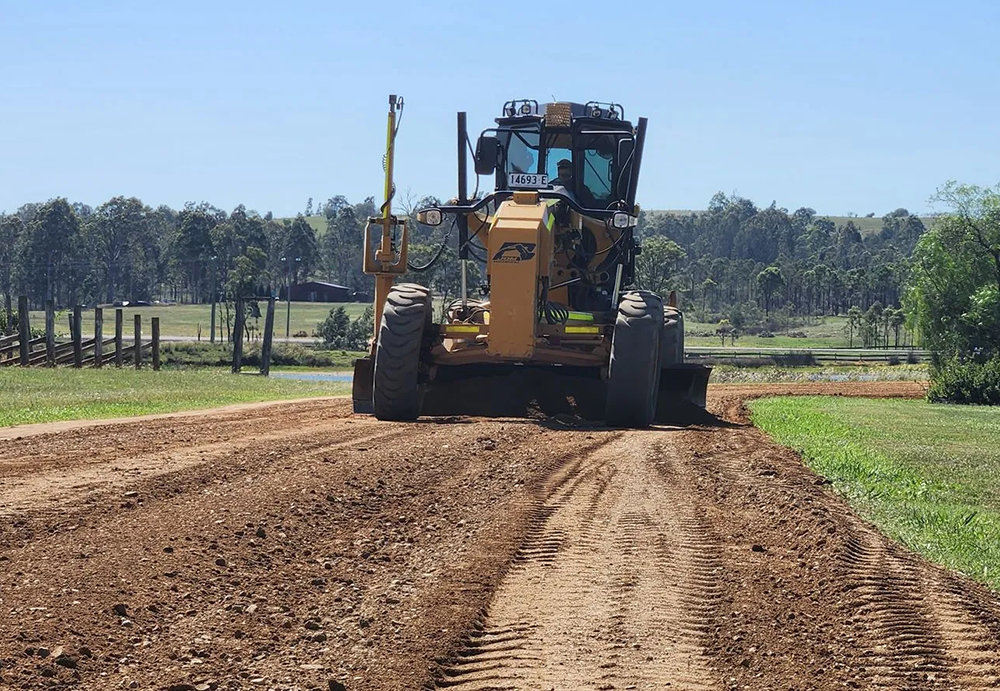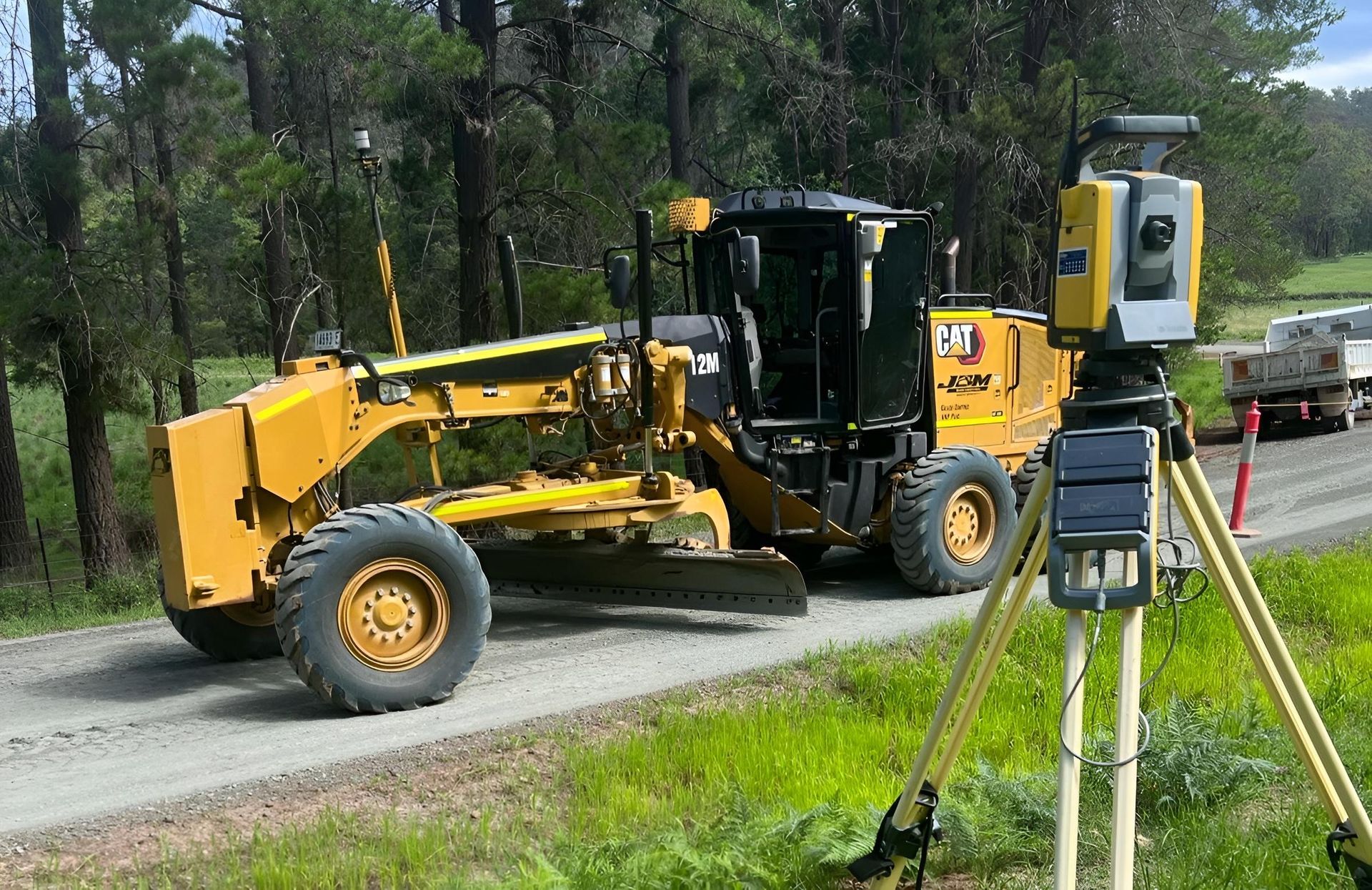The Importance of Site Preparation in Civil Construction
Before any structure rises from the ground, a lesser-seen yet critical phase unfolds beneath our feet—site preparation. This process, often overlooked by those outside the industry, forms the literal and figurative groundwork for every successful civil construction project. Whether it’s a residential subdivision, a new industrial estate, or public infrastructure, site preparation ensures that everything built above ground is stable, compliant and long-lasting.
Poor preparation can delay timelines, cause safety hazards, water drainage issues, and structural failures. In contrast, civil contractors who approach this phase with diligence and expertise set the stage for a smooth build. Here's why site preparation is far more than just clearing land—it’s a strategic investment in the success of your project.
Soil Testing Prevents Structural Failures Before They Begin
Understanding what's beneath the surface is essential. Soil testing provides critical geotechnical data, revealing the ground's composition, strength, and load-bearing capacity. Without this information, even well-designed buildings are at risk of movement or collapse.
A professional soil test conducted during the early planning stages allows engineers and civil contractors to:
- Determine the depth and type of footings required
- Identify reactive or unstable soils that may swell or shrink
- Assess groundwater conditions that affect foundation design
- Recommend compaction and fill requirements
Civil contractors in Newcastle use these results to adapt construction methods to site-specific conditions. It’s one of the most important risk mitigation tools in the construction lifecycle.
Proper Excavation Sets the Stage for Safe Construction
Excavation is more than simply moving dirt—it is about reshaping the land to meet the project's structural, functional, and environmental needs.
Types of excavation work typically include:
- Bulk earthworks to level uneven terrain
- Trenching for utilities and services
- Rock removal or breaking in harder soils
- Contaminated material excavation in brownfield sites
When handled properly, excavation enables safe foundation construction and infrastructure installation. If done poorly or with insufficient planning, it can result in collapsed trenches, slope instability, or uneven building platforms, leading to long-term settlement issues.
Civil contractors in Newcastle with access to specialised earthmoving equipment ensure excavation is executed safely, efficiently, and in accordance with environmental regulations.
Grading Controls Water Flow & Prevents Erosion
Once the land is excavated, grading shapes it to facilitate proper surface runoff and stormwater flow. This is especially important in civil construction projects where poorly directed water can lead to structural damage, flooding, and soil erosion.
Key benefits of precise site grading include:
- Directing stormwater away from structures and roads
- Reducing pooling or surface saturation that damages asphalt or concrete
- Preventing erosion around retaining walls and embankments
- Creating a smooth, even platform for slab pours and road base layers
Grading must align with drainage plans and local compliance standards, another area where experienced civil contractors bring immense value to a project.
Effective Drainage Planning Avoids Future Water Damage
Drainage is a critical component of site preparation that can make or break the longevity of any built structure. Civil contractors design and install systems that collect, direct and remove water from the site in a controlled and efficient manner.
This often includes:
- Stormwater pits and underground piping
- Open swales and diversion channels
- Subsoil drains behind retaining structures
- Drainage blankets to prevent water build-up under slabs or roads
Cutting corners here invites future problems like foundation cracks, structural movement, and water ingress into buildings. A well-prepared site includes long-term thinking about how water will behave—not just today, but in years to come.
Utility Planning Ensures Seamless Infrastructure Integration
During site preparation, provisions for underground utilities are carefully mapped out and coordinated. These services include water supply, sewerage, electricity, gas, and telecommunications.
Effective utility planning enables:
- Safe trenching and conduit installation
- Avoidance of clashes between service routes
- Streamlined approvals from service authorities
- Future-proofing for infrastructure upgrades or expansion
By integrating these services at the start, civil contractors minimise costly rework, protect public safety, and reduce project delays caused by utility access or redesigns later in construction.
Access Roads & Entry Points Enable Safe Site Movement
Temporary and permanent access points are often created during site preparation to support the flow of heavy vehicles, personnel and materials throughout the project.
This may involve:
- Constructing temporary gravel roads for early access
- Creating turning bays for large equipment and deliveries
- Ensuring safe entry points off main roads or highways
- Allowing for emergency vehicle access and clearances
Reliable access is vital to maintain safety and productivity, especially on high-volume or staged civil construction projects. Contractors equipped with the right earthmoving machinery in Newcastle can lay these roads quickly and maintain them throughout the build.
Compliance with Regulations Begins at Ground Level
Site preparation is governed by multiple regulations—council codes, environmental protection rules, workplace safety standards and engineering guidelines. Civil contractors must ensure compliance from day one to avoid fines, delays or litigation.
| Compliance Area | What It Covers |
|---|---|
| Environmental management | Sediment control, tree protection, waste handling |
| WHS (Work Health & Safety) | Trench safety, machine operation, and site access control |
| Planning permits | Conditions around heritage zones, noise and hours of work |
| Engineering standards | Soil compaction, fill material quality, and drainage design |
Professionals well-versed in local legislation streamline the approval process and deliver peace of mind to developers, builders and project managers.
A Professionally Prepared Site Saves Time & Money
Cutting costs during site preparation often leads to ballooning expenses later. Engaging a reputable civil contractor from the outset ensures problems are addressed before they escalate.
Benefits of professional site prep include:
- Fewer delays during construction due to rework or site instability
- Accurate estimation of materials and timelines
- Smoother coordination with surveyors, builders and utility providers
- Reduced safety incidents due to clear, compliant site access
Local expertise also helps navigate unique terrain challenges, soil conditions and regulatory frameworks. It’s not just about digging holes—it’s about laying a strong, compliant and efficient foundation for everything that follows.
Looking for Reliable Earthmoving Near You? Start Here
At JDM Civil Group, we bring precision, reliability and deep local knowledge to every site preparation project. From excavation and grading to drainage and earthmoving in Newcastle, our team is equipped to manage every aspect of civil construction groundwork. Our civil contractors in Newcastle understand how critical proper preparation is to the success of your development—and we make sure it’s done right the first time.
Contact us via our contact page to discuss your site preparation needs or book a consultation with our Newcastle team. Let’s build it right from the ground up.







